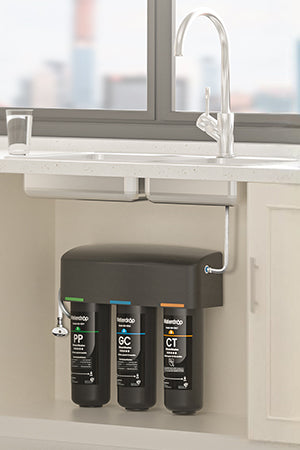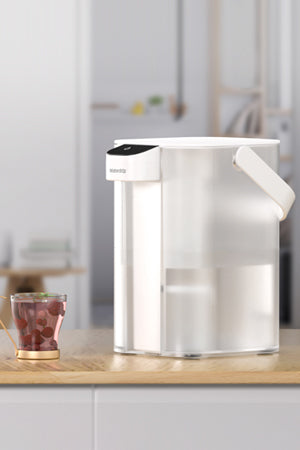When it comes to boiling water, most of us don’t give it a second thought. When you boil water for your morning kopi or get ready to make laksa, the time to boil can change. But just how long does it really take for water to boil, and what factors influence this process? In this article, we’ll break it down simply and give you the answers you need, tailored to life in Singapore.
The Basics of Boiling Water: What Does it Mean?
Before diving into specifics, it’s essential to understand what "boiling water" actually means. Boiling water is the process where water reaches its boiling point, which is typically 100°C (212°F) at sea level. At this temperature, water turns into steam, and bubbles form throughout the liquid.
In Singapore, where we’re at sea level, the boiling point of water remains constant at 100°C. However, the time it takes to reach that
boiling point depends on various factors.
Factors That Affect How Long Water Takes to Boil
So, how long does it really take to boil water? Let’s take a look at the factors that influence this timing.
1. The Amount of Water
One of the biggest factors that affect boiling time is the amount of water you’re heating up. For example, a small pot with just 1 cup of water will boil much faster than a large pot with 2 or more litres of water. The larger the volume, the longer it will take to bring the water to a boil.
2. The Type of Stove
The type of stove you use in your kitchen can significantly impact the boiling time. Here are the most common types of stoves in Singapore:
Gas Stoves: Gas stoves are generally quicker at boiling water. The flame directly heats the pot, and the temperature can be adjusted easily.Electric Stoves: These are a bit slower than gas stoves because the heating element takes longer to heat up and transfer the heat to the pot.Induction Cookers: Induction stoves are known for their efficiency. They use magnetic fields to directly heat the pot, making the boiling process faster than electric stoves.
In general, gas and induction stoves will boil water faster than traditional electric stoves.
3. Pot Size and Material
The size and material of the pot you use can also affect the time it takes to boil water. A larger pot will need more time to heat up compared to a smaller one, and the material of the pot plays a role as well. Stainless steel pots, for instance, tend to take longer to heat up than aluminium pots. This is because
aluminium conducts heat better, allowing water to boil faster.
If you’re looking for a faster boil, consider using a kettle instead of a pot. Electric kettles are designed to boil water quickly and efficiently.
4. The Starting Temperature of the Water
The temperature of the water you start with can also affect the boiling time. Cold tap water will naturally take longer to boil than water that’s already at room temperature.
Filtered water can be cooler than tap water. For example, this can happen when you use water from a reverse osmosis system or a
water cooler dispenser. This may slightly increase the time it takes to boil.
How to Know When Water Has Boiled
Knowing when water has reached the boiling point is important, especially when preparing your favourite drinks or recipes. Look for the following signs:
Bubbling: When water is boiling, you’ll notice large bubbles forming and rising to the surface. These bubbles indicate that the water is turning into steam.Steaming: You’ll also notice steam rising from the water as it heats up.Rolling Boil: A rolling boil occurs when the water is bubbling rapidly and continuously.
Once you see these signs, your water is at the correct temperature and ready to use!
Why Reverse Osmosis Water is the Safest Water for Drinking in Singapore
When it comes to drinking water, safety and purity are paramount. Singapore is famous for having some of the cleanest tap water in the world. This is due to strict rules and advanced water treatment methods.
However, despite the high standards of tap water, some residents may still prefer to filter their water further to ensure the highest level of purity. This is where
reverse osmosis (RO) water comes in.
Benefits of Reverse Osmosis Water in Singapore
In a country like Singapore, the weather is always hot and humid. It’s important to drink a lot of water every day to stay hydrated. Here’s why RO water is the safest choice for drinking:
Removes Harmful Contaminants
While Singapore’s tap water meets safety standards, contaminants like chlorine, fluoride, and microplastics can still be present in trace amounts. RO filtration effectively eliminates these impurities, ensuring your drinking water is as clean as possible.
Improved Taste
If you’ve ever noticed an unpleasant taste or smell in your tap water, reverse osmosis filtration can solve this problem. By removing chlorine and other chemicals, RO water has a cleaner, fresher taste, making it more enjoyable to drink.
Better for Sensitive Stomachs
Some people, especially those with sensitive stomachs or digestive issues, may experience discomfort from drinking unfiltered tap water. RO water, being free of harmful contaminants, can be easier on the digestive system and provide relief from such issues.
Environmentally Friendly
Using an RO water system reduces your reliance on bottled water, which can harm the environment. By filtering your water at home, you can reduce plastic waste and enjoy clean water on demand.
Reverse Osmosis Water Systems in Singapore
If you’re considering making the switch to reverse osmosis water, you’ll find various RO systems available in Singapore. These systems are easy to install, cost-effective, and provide long-term benefits for both health and the environment.
Popular brands provide compact models that fit well in kitchens of all sizes. This ensures you always have access to purified water. You won’t need to make constant trips to the store.
Click here to learn more about:
Is Sparkling Water Good for You?
Conclusion: Boiling Water Made Simple
Boiling water may seem like a simple task, but several factors come into play when determining how long it takes. In Singapore, where we’re always in a rush, knowing these factors can help you save time and energy in the kitchen.
Whether you’re using a gas stove, electric stove, or induction cooker, the key takeaway is that smaller amounts of water boil faster, and using the right pots and kettles can speed up the process. If you’re looking for the fastest way to boil water, consider investing in an electric kettle, or use filtered water for a cleaner, quicker boil.
Now, the next time you boil water for your favourite local drink or meal, you’ll know exactly how long to expect the process to take!




































































